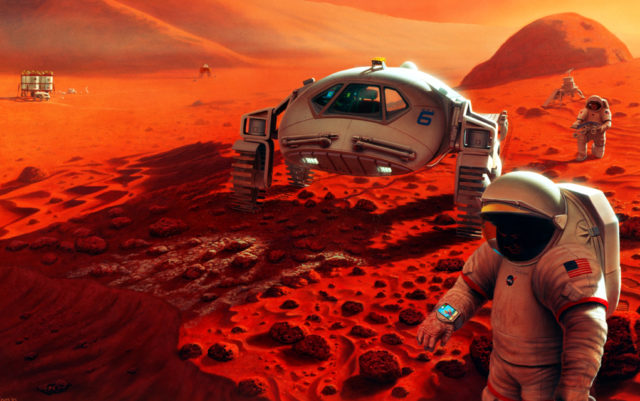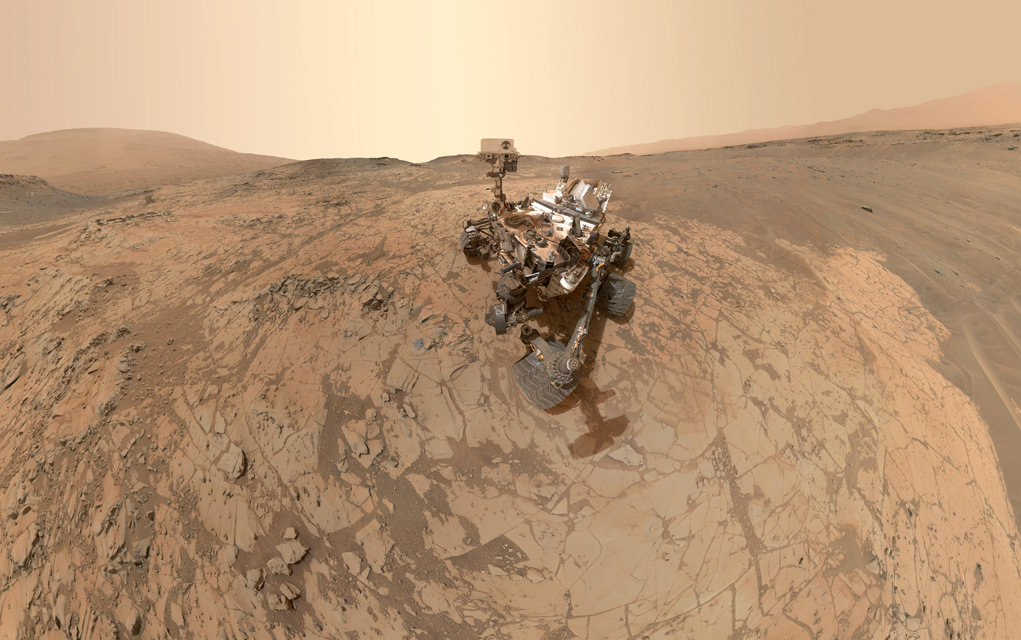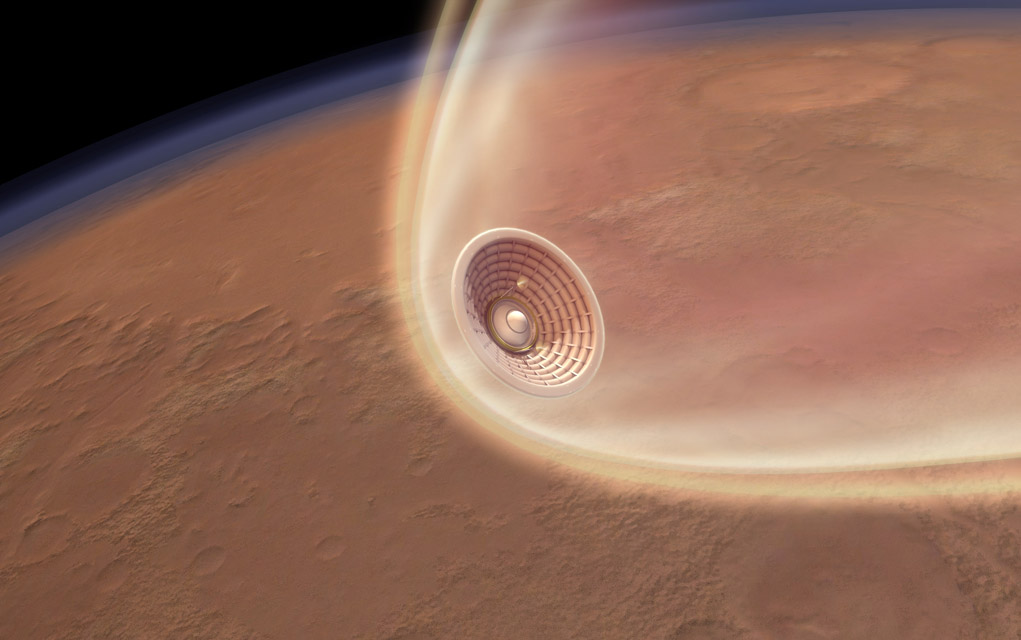
Since August 2010, when the Curiosity rover landed in the Gale Crater on Mars, it’s been providing earthlings a close-up look at our neighboring planet. As part of his routine, space journalist Leonard David checks in on the rover every morning for a “dose of the Red Planet.”
“It’s pretty cool,” David says. “It’s an interesting planet, still loaded with a bunch of surprises.”
David has been working as a space journalist for the past 50 years, residing in and around Boulder County since 2001. He’s covered a multitude of topics, but Mars has always been one of his focus points. He stops by the Boulder Book Store with his latest book, Mars: Our Future on the Red Planet, on Nov. 16.

This new book came about after David’s 2013 book Mission to Mars — My Vision for Space Exploration, released by the National Geographic Society and written together with astronaut Buzz Aldrin. Soon after, Nat Geo reached out again to David and offered him a chance to write his own book, and that’s how Our Future on the Red Planet was born. He frames it by following the first fictitious crew to Mars, who land there in 2033. The book also serves as a companion to the new television series on the National Geographic Channel called Mars, directed by Ron Howard and premiering Nov. 14.
In his book, David analyzes the challenges of getting to the planet and highlights the many real people working to reach the destination.
“I’m trying to paint a picture of not only the technical and the scientific issues ahead, but also ethical, sociological, physiological, psychological [issues],” he says. “What has to happen in reality with putting people on the surface of Mars, and having them survive and thrive there?”
Mars has been the next major goal for space travel since Aldrin set foot on the moon in 1969. Progress toward Mars has been made, but almost 50 years later no country has yet sent a manned mission to the planet.
Yet it seems plans are gaining momentum. Mars has recently been in headlines, from Barack Obama penning an article for CNN about American progress toward Mars in the near future, to engineer and entrepreneur Elon Musk setting his sights on colonizing Mars within a decade.

When humans will step on Mars elicits varied answers dependent on several factors, David says. NASA is working with a 2030-2035 mindset, while Musk is aiming for around 2020. Various other countries have their own operations as well.
The journey to Mars may seem segmented, potentially opening the door for political conflicts and harsh competition between nations. But for David, he sees the mission to Mars as a bigger goal surpassing Earthly politics.
“You always have the one-upmanship issue,” he says. “Countries want to do it on their own and try to usurp everyone and be the first one on Mars. Good luck. But I don’t care who’s doing it, it’s still a big deal.”
David’s ideal scenario would be a global effort to reach Mars.
“You have multiple nations interested in Mars, and contributing their technology and scientific know-how to peel away at the mysteries,” he says. “Take the best and brightest from multiple nations. Global reach for Mars, I think that’s sort of the way we’ll go.”
David sees the International Space Station (ISS) as a good example of how countries are working together to make advancements.
“There are crews from all over the place. Particularly with the U.S. and Russia, even with all the tension going on, there’s still collaboration,” he says. “And Japan is also a big player. They seem to be getting along fine. They train together as a team. And you kind of think, ‘Well is that the template for Mars?’ Probably.”
ISS is doing more than just providing a template for global cooperation; it’s also a test bed for experiments.

“Plant growth experiments are underway. There’s life science experiments, like what happens to your body on a six-to-nine month, one-way trek out to Mars. That’s always been an issue, calcium loss. Legs turn into rubber; you don’t use them much in microgravity,” David says. “The station is a great opportunity for multiple nations, not just NASA or the U.S., to better understand the challenges of putting people on the long duration treks.
“This isn’t pie in the sky anymore, people are working hard to pull this thing together, and make it as safe as possible and make it as productive as possible.”
David says the eventual mission will be different than the moon landing.
“We’re talking about a different kind of exploration than Apollo, where you put the flag up, you salute, you run around and get rocks, you put experiments on and you get out of there. This is much more complicated.”
Ideally the crew would spend several months on the planet gathering data and answering questions about anomalies such as Mars’ water supply and, the big one, the existence of life beyond Earth.
The next couple of decades are sure to provide more data about the Red Planet, and surely lead to many more questions. As David says, “That’s all part of the majesty and mystery of Mars.”














